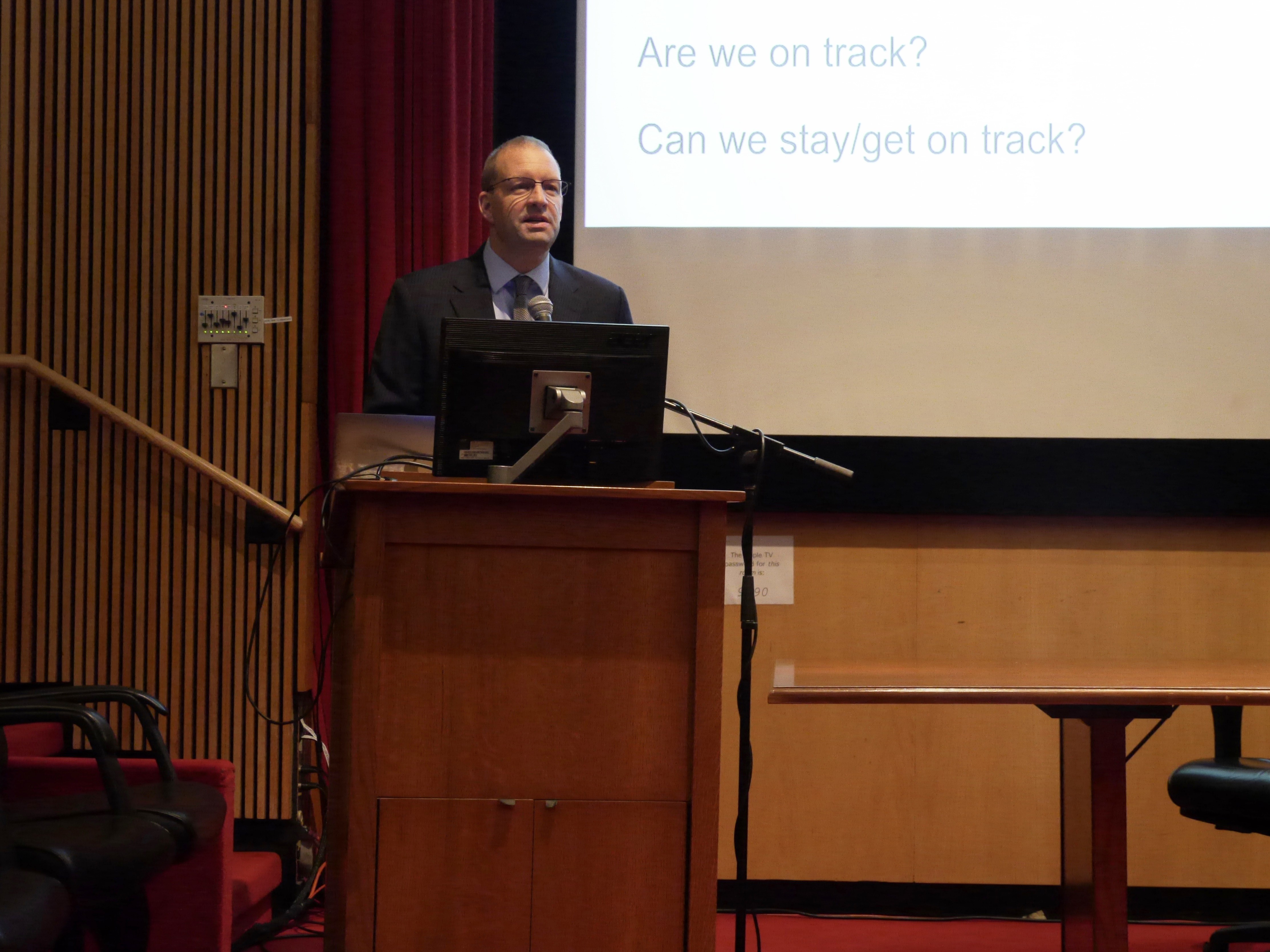

Dan Utech ’88, former deputy assistant to President Barack Obama for energy and climate change, spoke at the college on Wednesday, Nov. 8 about issues related to the state of climate change and potential policy solutions. Utech’s talk, which took place in Converse Hall, was held by the Amherst Political Union.
Before becoming Obama’s deputy assistant for energy and climate change, Utech spent 10 years as an aide in the Senate and later served as senior advisor to Energy Secretary Steven Chu, according to the White House website. Utech is currently a lecturer at the Yale School of Forestry and Environmental Studies.
In his talk, Utech focused on the human contribution to the problem of climate change and policy options to remedy the effects of global warming.
“Many lines of evidence demonstrate that it is extremely likely that human influence has been the dominant cause of global warming since the mid-20th century,” Utech said.
“There are no convincing alternative explanations supported by the extent of observational evidence,” Utech added.
The average global temperature has risen about 1.4 degrees Fahrenheit since 1880, according to NASA, and Utech said that this trend is likely to continue through this century and beyond.
The magnitude of this trend is partially based on the amount of greenhouse gases emitted globally. In 2010, human activity had contributed 46 billion metric tons of greenhouse gases to the atmosphere, which is a 35 percent increase from 1990, according to the U.S. Environmental Protection Agency website.
In explaining the effects of climate change, Utech talked about the American Climate Perspective, a project founded by a consortium of universities that attempts to quantify the effects of climate change. He focused on a particular study released by the project, which shows what will happen if the current trajectory of emissions continues compared to what will happen if emissions increase indefinitely. The study found that if emissions rise indefinitely, then in the next century, “Nearly all the summer months in eastern U.S. would feel like the worst days from the 1995 heat wave in the Midwest.”
Though the U.S. is no longer on a path leading to the extreme heat described in the ACP study, Utech said, “We are still not really where we want to be, but we have already made some progress in preventing the worst consequences.” The most cost-effective strategy for achieving the target reduction in emissions is to focus on the energy sector, he said, which is the largest contributor to emissions.
A strategy targeting the energy sector would include changes to transportation, such as increasing the use of electric cars, and a growth in energy efficiency, which involves reducing energy waste and decarbonizing the power sector by reducing its carbon intensity. In order to decarbonize, a move from coal to renewable energy sources would need to occur.
Utech also talked about the status of the climate change problem in the United States. “Prior to 2009, forecasts projected that U.S. emissions were just going to go up indefinitely, and instead they declined by about nine percent through 2015,” he said.
Although Utech spoke on the progress the United States has made in terms of reducing the effects of climate change, he said not everyone understands its importance. “People think [climate change is] a problem,” he said, “but they don’t think it’s a big, pressing problem.” He added that he doesn’t understand why the issue of climate change has become a politically polarizing topic.
Patrick Friend ’20, a student who attended the talk, said that he was encouraged by what Utech had to say. “It was great getting to hear some cautious optimism from the speaker,” Friend said. “Basically, about how even though Trump is in power now, there are safeguards in place to prevent him from doing too much damage.”
Zoe Wong ’18, another attendee and an environmental studies major, said that she was mostly familiar with the information Utech presented, but said she “appreciated the opportunity to hear from someone who was directly involved in the Obama administration’s effort to combat climate change.”